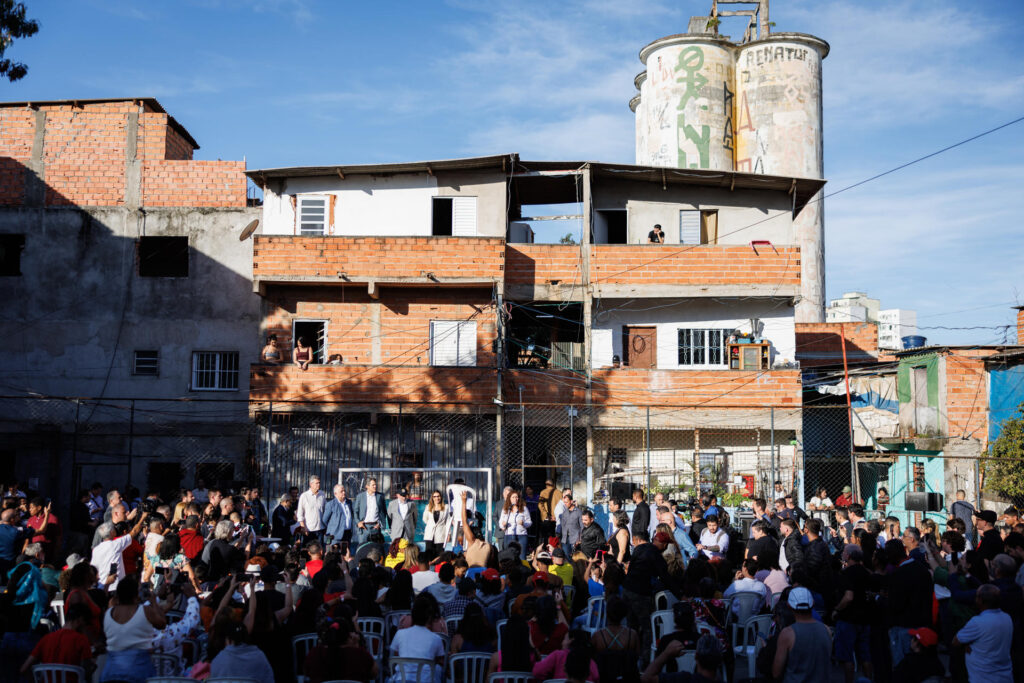As Brazil Closes São Paulo’s Last Downtown Favela, Relief and Regret Collide

Standing on a dusty railroad embankment, Brazil’s president promised that every family still living in São Paulo’s last downtown favela would soon hold the key to a real home. For some, it was long-awaited progress. For others, it felt like goodbye.
A Historic Subsidy That Signals the End of an Era
When President Luiz Inácio Lula da Silva arrived at Favela do Moinho last Thursday, he brought more than a speech—he brought checks.
His government’s decree, backed by state and federal funds, offers each low-income household up to 250,000 reais (roughly $45,000) to relocate. According to city officials, 791 of the favela’s 880 families have already accepted the offer. Lula cited that figure as proof of consensus, declaring:
“This time, the bulldozers will not move faster than human dignity.”
But the moment carried more than promises—it marked the closure of a chapter in Brazilian urban history. Moinho, crammed between two freight lines near the crumbling Luz Station, is the last downtown favela from a wave of inner-city occupations that took root during the 1980s economic crisis.
For urban historians, its clearance isn’t just relocation. It’s a symbolic finale to an era when informal housing rose in the shadows of Brazil’s financial towers—an era now being swept away, one moving truck at a time.
Between Gratitude and Grief: Residents Face a Choice
For many families, the relocation offer represents a lifeline. For others, it feels like being evicted from a place they built with their own hands.
“I feel sad because we grew up here,” Aline Santos, 22, told EFE, even as she clutched paperwork for a new apartment in the northern district of Cachoeirinha.
The bittersweet feeling is familiar. Psychologists from the University of São Paulo warn that sudden displacement often unravels neighborhood support systems. Parents like Santos worry about losing easy access to schools, clinics, and neighbors who helped raise their children.
A 2023 study in Environment and Urbanization found that resettlement often adds 60% more commuting time for working parents pushed to the city’s periphery.
Small business owners face even greater challenges. Hellen dos Santos, who sells frozen açaí just outside the favela’s spray-painted gate, says her family will lose its only income.
“They only talk about houses,” she said. “But forty shops will vanish overnight.”
The relocation package does not include funding for micro businesses. Jorge de Santana, 59, has run a tailor shop in Moinho for years. He expects to be unemployed by next month.
Labor economist Paulo Tavares notes that favela-based enterprises support roughly seven jobs per hundred residents—a ratio higher than in formal suburban retail zones.

Land Disputes, Police Raids, and Political Chess
Favela do Moinho isn’t just informal housing—it sits on federal railway land controlled by the state government of Tarcísio de Freitas, a right-leaning governor allied with former President Jair Bolsonaro.
In April, Freitas ordered an emergency eviction, citing drug activity and fire hazards. Military police demolished vacant homes. Cell phone footage captured the aftermath: officers firing tear gas, residents hurling roof tiles.
Lula condemned the raid as “urban cleansing” and invoked the federal government’s authority over Union-owned property. His housing minister froze the eviction. The announced deal, which was finalized on Thursday, is the result of weeks of tense negotiations.
Freitas, however, hasn’t backed down. He plans to convert the two-hectare site into a linear park that will connect Luz Station with a future cultural district. Lula used the ceremony to swipe back:
“A beautiful park cannot be born from someone else’s suffering.”
Analysts at the Getúlio Vargas Foundation say the land dispute may be a preview of Brazil’s 2026 presidential race. Freitas is widely seen as a top contender from the right. Clearing a downtown favela may boost his urban development credentials—but videos of displaced families could alienate moderate voters.
What Comes After the Bulldozers?
The plan sends families to three social housing complexes—two already built and one still under construction on São Paulo’s eastern edge. Those opting for the unfinished site will receive 1,200 reais per month in rent assistance until the site is completed.
But experts warn that Brazil’s marquee public housing initiative, Minha Casa Minha Vida, has a mixed track record. Past developments have suffered from poor maintenance, water shortages, and crumbling façades.
“We will not dump people in concrete boxes and forget them,” Lula pledged. But follow-through remains to be seen.
Meanwhile, urbanists are debating what to do with Moinho’s most iconic landmark: a charred grain silo, scorched in a 2012 fire, now towering above downtown as a de facto protest mural for housing activists.
Architect Raquel Rolnik warns that bulldozing the silo without some memorial would erase the memory of the laborers and migrants who once lived here. City officials have floated the idea of a small commemorative plaza—but no funding has been secured.
As Thursday’s ceremony wound down, bulldozers rumbled just beyond the tracks. Teenagers played soccer with a deflated ball on what was once the neighborhood’s main walkway. Aline Santos stood in her doorway, children already asleep inside.
Also Read: From Colombia to Kyiv: The War in Ukraine Recruits Far from Home
She felt something she couldn’t quite name—relief, maybe, that her daughters would grow up with an official address. But also grief for a life that would soon exist only in memory.
“We’re leaving with more than our things,” she said. “We’re leaving with all the years we shared.”
For Brazil, her words capture the truth behind every closed favela gate: progress and loss can arrive on the same day.




